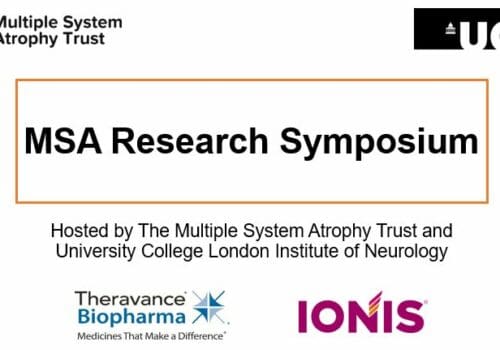Don’t believe everything you read in the papers
The Trust’s Interim CEO, Karen Walker, separates fact from fiction in recent media coverage about MSA.
Nowadays we all rely on social media to keep us informed about events and news. Most of the time this is fantastic but when it comes to complex medical information, simplistic reporting can create stress and anxiety.
So it proved when we received an alert to an article published online in the USA about research into alpha-synuclein protein. The researcher, who is an eminent neurologist, had detailed the research he and others had undertaken into how alpha-synuclein protein mutates and folds in on itself to create an abnormal formation.
Unfortunately, the article published in a medical journal and circulated amongst neurologists and other research professionals was reported by the non-neurological press in such a way as to cause real concern for readers. The coverage suggested that perhaps MSA could be infectious and passed from person to person. Headlines implying MSA was like ‘Mad Cow Disease’ understandably frightened many people affected by MSA.
We wanted to alleviate concern and so we turned to our expert neurological researchers for their advice. They have very helpfully provided the following observations about the article and have gone back to the research paper to interpret what it really means for the MSA community.
The most important thing they want to stress is that using the term ‘prion’ to describe cell to cell spread is not helpful. The Chair of our Scientific Advisory Panel, Professor David Burn, suggests using the term ‘permissive templating’, where an abnormal protein leads to another protein taking on an abnormal formation. There is currently NO evidence that MSA is infectious and can be ‘caught’ when a surgical procedure is undertaken. There is also a strong statement within this research paper which says that there is no evidence that MSA is a naturally occurring transmissible disease among humans. Both of these properties would need to be demonstrated for MSA to be considered a true prion disease.
So how does the study improve our understanding of MSA?
- In laboratory tests the study demonstrates that it is possible to induce a particular type of abnormal formation of alpha-synuclein, but only if there is already an existing mutation that increases the risk of the protein folding and grouping together.
- It also states that it could be the case that the disease might have developed because there was already a brain protein mutation and introducing the MSA alpha-synuclein abnormal protein brought forward the development of MSA.
- The study reiterates that MSA does not cluster in groups of people in contact such as families, therefore it is not passed through a family line.
- The study also concludes that research showing that there is the possibility of brain proteins grouping together in an abnormal way and forming seeds can cause further grouping called aggregation. This is positive because it lead to researchers finding out how to stop this process.
Trying to decipher scientific research is not easy and sensationalist journalism does not help. But it’s important to stress that each piece of research takes us one step closer to better understanding MSA. Ultimately this will lead to scientists finding the cause, and one day, a cure.
Disclaimer: The views and opinions expressed in the blogs published on these pages are those of the authors and do not necessarily reflect the official policy or position of the MSA Trust.




